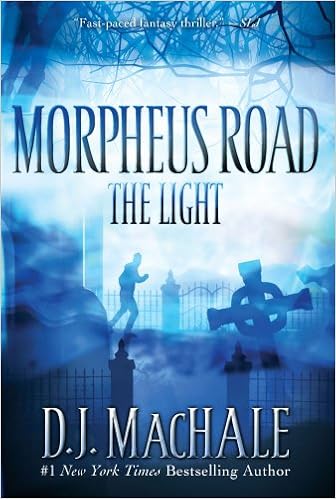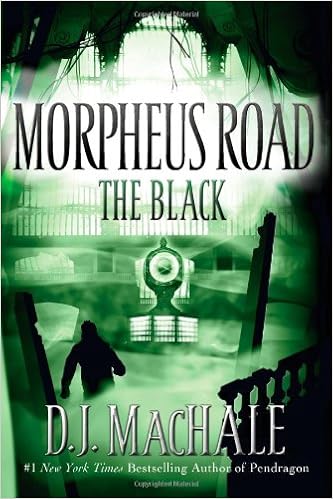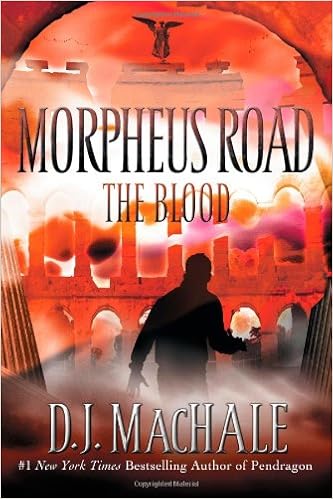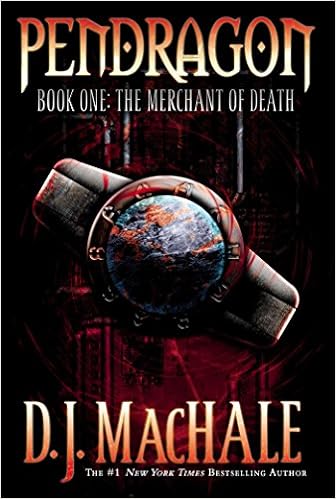Greetings, commies!
Today I am thrilled to feature a fellow Connecticut
native, who has since settled in California. Meet D.J. MacHale, writer of young
adult horror. Extremely accomplished, multi-talented (hello, New York Times bestseller!) he is extremely humble and down-to-earth. I came across his MorpheusRoad series at the Greenwich Library. His books will entertain, frighten
and enlighten a wide range of readers. My son is a teenager, yet he's not above coming into his parents' bed at night after watching a scary movie or reading a scary book. MacHale's novels are in that keep-your-lights-on category. They are set in American suburbia, but you don’t need to be inside a spooky
castle in Romania to experience terror.
________________________________
MJN: To come up with a convincing horror concept that will
resonate with the audiences you need to understand the psychology of your
readers and tap into certain archetypes and common nightmares. A floating
cadaverous figure, reptile-like figures jumping from under the dark water. Some
of your scenes gave me chills because it felt like you had read my mind. I've
actually had those nightmares myself. What were some of the scariest dreams you
had as a kid?
DJM: Most of my scary dreams had (and have) to do with
real-life situations. Falling, being chased, taking a test I hadn’t studied
for. I believe that’s what works best with creating horror scenarios as well.
Start with something real. Something everyone can relate to. And then twist it
into something strange. I did have a recurring dream about being chased by the
Frankenstein monster. But what I remember most about those dreams was not that
I was in some gloomy castle in Europe. I was in my own house or backyard. It’s
the strange intruding on the familiar that gives a scene it’s true creepy
quality that resonates with readers.
MJN: Many of Stephen King's novels are set in rural main. Your Pendragon and Morpheus Road series are set in suburban Connecticut, a place of privilege that comes with certain ... how should I put this milidly? Impunity. That's the word. You certainly have explored it in your Morpheus Road series. I'm referring to people who think they can get away with murder, literally.
MJN: Many of Stephen King's novels are set in rural main. Your Pendragon and Morpheus Road series are set in suburban Connecticut, a place of privilege that comes with certain ... how should I put this milidly? Impunity. That's the word. You certainly have explored it in your Morpheus Road series. I'm referring to people who think they can get away with murder, literally.
DJM: Ha! I think another word you’re looking for is
entitlement. I wish I could tell you that setting stories in such an
environment was done intentionally in order to make some sort of social
statement. But it wasn’t. It simply was where I grew up so I could write about
it with authority. Though I did have a fairly unique perspective in that I grew
up lower-middle class in a very high-falutin’ town. (Greenwich, CT) That may
have given me a unique perspective on entitlement or the lack thereof.
MJN: You explore the concept of illusion. I don't know if you subscribe to the Judeo/Christian metaphysical dogmas, but as far as I remember from Sunday school, we were always taught that demons could not physically hurt you. They would mess with your mind, confuse you and inch you towards actual danger. In most cases fear is good and healthy and can save your life. But sometimes fear can make you run in the wrong direction. In Morpheus Road: the Light the two characters, Marsh and Sydney, actually learn to discern between illusion and reality. And yet, the inability to discern between reality and illusion is at the very core of horror.
MJN: You explore the concept of illusion. I don't know if you subscribe to the Judeo/Christian metaphysical dogmas, but as far as I remember from Sunday school, we were always taught that demons could not physically hurt you. They would mess with your mind, confuse you and inch you towards actual danger. In most cases fear is good and healthy and can save your life. But sometimes fear can make you run in the wrong direction. In Morpheus Road: the Light the two characters, Marsh and Sydney, actually learn to discern between illusion and reality. And yet, the inability to discern between reality and illusion is at the very core of horror.
DJM: I’ve used illusion quite a bit in my stories. Not just
with Morpheus Road, but also with my TV show Are You Afraid of the Dark? and
with my new book series The Library. Putting it simply, it’s a device. It gives
me free-reign to use my imagination to concoct all sorts of horrific situations
and scares. If an antagonist has the ability to conjure someone’s deepest fears
and make them appear real, suddenly the bag of tricks at my disposal to create
scares is limitless. So the need to differentiate illusion from reality isn’t
so much a philosophical dilemma for the characters as it is a practical
challenge.
MJN: Let's talk about the character of Marsh, a middle-class teen protagonist and his bourgeoning awareness of his manhood. There are so many horror stories in the media about "rape culture" and "war on women". Men tend to be demonized. You did a marvelous job depicting the sexual maturation of a sixteen-year old boy. Morpheus Road is not an inspirational/Christian series by any means, but I applaud the fact that you depicted your protagonist in a wholesome light. He's not a prudish saint, by any means, but his behavior is appropriate for his age, and I imagine, fairly typical. The truth is, most teenage boys do find attractive girls terrifying. And even if they say something lewd or gross, it's usually not a precursor to any physical violence.
MJN: Let's talk about the character of Marsh, a middle-class teen protagonist and his bourgeoning awareness of his manhood. There are so many horror stories in the media about "rape culture" and "war on women". Men tend to be demonized. You did a marvelous job depicting the sexual maturation of a sixteen-year old boy. Morpheus Road is not an inspirational/Christian series by any means, but I applaud the fact that you depicted your protagonist in a wholesome light. He's not a prudish saint, by any means, but his behavior is appropriate for his age, and I imagine, fairly typical. The truth is, most teenage boys do find attractive girls terrifying. And even if they say something lewd or gross, it's usually not a precursor to any physical violence.
DJM: All of my main characters are different versions of
myself. I take some characteristic that I am very familiar with and make that
the principal trait of my fictional character. In Marsh’s case, he’s 16 going
on 12. He’s imaginative, creative and thoughtful. He’s more comfortable living
in the world of his imagination (through his drawings) than he is dealing with
the realities of growing up. He’s the kind of guy who can speak with enthusiasm
and at length about things that nobody else cares about. (i.e. his theory about
Superman) He’d rather build model rockets than hang out at the beach to pick up
girls. Basically, he doesn’t want to grow up because he’s enjoying being a kid
way too much. But therein lies the conflict with his best friend, Cooper...and
with life in general. Cooper is 16 going on 25. It’s that dynamic between the
two that really drives the emotion of the story. These two guys are polar
opposites in many ways, yet they have a history and care very much about each
other. Over the course of the story, Marsh is faced with some serious
challenges that force him to break out of the safety net of childhood,
something we all have to grapple with at one time or another.
MJN: I'm sure you've imagined your novels adapted to screen. Do you think they lend themselves to a big budget movie trilogy, or a TV series similar to Buffy and Angel. Can you think of any actors that you would like to see cast? I thought of Megan Fox for Sydney, though she's a bit too old to play a high-schooler.
MJN: I'm sure you've imagined your novels adapted to screen. Do you think they lend themselves to a big budget movie trilogy, or a TV series similar to Buffy and Angel. Can you think of any actors that you would like to see cast? I thought of Megan Fox for Sydney, though she's a bit too old to play a high-schooler.
DJM: I haven’t thought much about Morpheus Road as a film or TV project. There’s such a glut of this
kind of story being told on screens everywhere. The thing is, I write what I
call horror-lite. It’s legitimately scary for a younger person to read, or for
a highly imaginative reader of any age; yet it isn’t disturbingly horrific. In
other words...no blood, gore, demented killings, violence, etc. That’s a very
narrow market. Certainly The Light
could be easily translated to the screen, though as we move further along the Morpheus Road, the canvas becomes bigger
and by the end we’re talking a Lord of the Rings level battle between the
forces of Heaven and Hell. That’s tough to pull off on TV. As for casting,
because my principal characters are young, I don’t ever think about what actors
might play what role because someone who might be perfect today, would be too old
tomorrow. So I hold off on thinking of it in terms of contemporary actors.




No comments:
Post a Comment